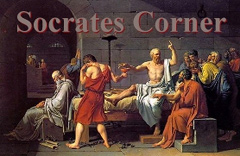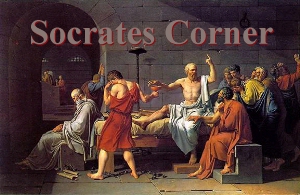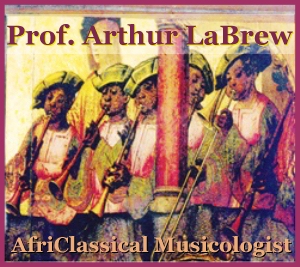On Cervantes: when morality is replaced with madness
Sanity may be madness but the maddest of all is to see life as it is and not as it should be.
~ Don Quixote
How long is that madness of yours still to mock us?
~ Cicero (Catiline Orations, 63 B.C.)
Biography
Miguel de Cervantes Saavedra (1547(?) – 1616), or “Cervantes” was a Spanish novelist, playwright and poet. His principle work, Don Quixote, is a classic of the Western literary canon which historians consider the first modern European novel. Like his literary precursors – Chaucer (English), Dante (Italian), Rabelais (French), Martin Luther, (German), Cervantes influence on the Spanish language has been so essential that Spanish is frequently named la lengua de Cervantes (“the language of Cervantes”).
After writing some minor literary works in the 1580s, he took a long sabbatical from writing during which time he did such diverse vocations as being a purveyor for the Spanish Armada and in 1597 a tax collector for the Crown. In 1605, Cervantes published the first part of his magnum opus, Don Quixote. Published in Madrid, this opus had immediate and universal appeal and thus began his return to the literary domain. Part 2 was published in 1516.
Don Quixote – Part I
Don Quixote is a middle-aged man from central Spain in the province of La Mancha. He has read many books based on chivalrous principles and thus his mind, delusional that these ideas are real, he resolves to arm himself with lance and sword to protect the helpless and to vanquish the evil. His first adventure is very short and unsuccessful, yet undeterred he immediately begins a second misadventure, this time convincing a gullible, unremarkable workman named Sancho Panza, to accompany him as his faithful squire. In exchange for Sancho’s help, Don Quixote vows to make Sancho the prosperous governor of an island. Don Quixote proudly rides upon his horse, Rocinante, who in reality is a decrepit nag barely able to carry his delusional master, as they go throughout the countryside of Spain in search of fame and fortune. Clinically psychotic, Don Quixote forsakes food, shelter, and well-being, for the love of Dulcinea del Toboso, a peasant woman, whom he imagines as a princess.
On his second adventure, Don Quixote devolves into an outlaw rather than a liberator, causing the people to become enraged by his rampant thievery and destruction of property (“Tilting at windmills” scene) while fighting against what he imagines as dangers to his knighthood, or in defense of the world. Don Quixote abandons a boy putting him under the control of a wicked farmer merely because the farmer falsely vows that he will not hurt the boy. He bargains to obtain a barber’s washbowl that he foolishly thinks possesses the mythic powers of Mambrino’s helmet, and he falls under the medicinal powers of the Balsam of Fierbras, a tonic that ironically makes him so sick that by comparison he actually thinks he is healthy. Sancho is the faithful companion of Don Quixote, who ironically carries the burdens (and punishments) that comes from Don Quixote’s psychotic antics.
In the next scene Don Quixote observers the funeral of an apprentice who dies as a consequence of his love for a scornful lady turned into a shepherdess. He liberates Gines de Pasamonte, an evil and deceitful galley slave, and accidentally brings back together two grieving couples, Cardenio and Lucinda, and Ferdinand and Dorothea. Ripped apart by Ferdinand’s betrayal, the four lovers in the end unite at a lodging house where Don Quixote in a dreamlike state imagines that he is fighting a giant.
All the while, the simpleton Sancho tries in vain to be the voice of reason in contrast to the delusional Don Quixote; always trying to prevent or lessen the consequences of his master’s bizarre and dangerous flights of fantasy. Believing that Don Quixote is possessed by a malevolent spirit, his two friends, the priest and the barber, take him home by force, thereby bringing to an end his second adventure and the First Part of the novel.
Don Quixote – Part II
The Second Part of the novel starts with a strong diatribe against a fake sequel of Don Quixote which was published in between the two parts by Cervantes. In all places Don Quixote travels, his reputation – composed by others from both the actual and the fictitious accounts of the narrative – goes before him. As the two go aboard on their adventures, Sancho deceives Don Quixote into believing that a witch changed his beloved Dulcinea into a lowly peasant girl (which in reality she is). Don Quixote’s obsession is to now counteract the witches’ magic which is so convincing that even Sancho is deceived.
In the next scene Don Quixote encounters a Duke and Duchess who collaborate to deceive him. One of their servants dresses up as Merlin, and tells Don Quixote that Dulcinea’s spell can be undone as long as Sancho lashes himself thousands of times. Don Quixote and Sancho embark on a number of adventures orchestrated by the Duke and Duchess. They head off on a flying wooden horse in an effort to kill a giant who casts a spell transforming a princess and her lover into metal ornaments and places beards on all the female servants of the princess.
As Don Quixote promised at the beginning to convince his companion join him, Sancho is made governor of an imaginary island during his sojourn with the Duke. However, his reign only lasts for ten days when he is injured in an attack the Duke and Duchess promote for their amusement. Sancho rationalizes that it is more desired to be a happy worker than a depressed governor. Despite the strong love interest from the Duke’s maid for Don Quixote, he remains faithful to his beloved Dulcinea. Their sexless relationship also a source of great amusement to the court. Tragedy soon meets Don Quixote as he embarks again on his adventure. Soon after coming to Barcelona, the Knight of the White Moon (a former friend in disguise) kills him.
Cervantes demonstrates his outstanding literary skill to the end concluding the story of Don Quixote with an extended Epilogue where the writer is translated into his own story. Cervantes narrates the tale of Don Quixote as a history, which he confesses derives from a document written by a Moor named Cide Hamete Benengeli. Cervantes even permits Sancho and Don Quixote to change their own histories and remark critically regarding the untrue history published about their adventures. Ultimately, the defeated Don Quixote renounces all the acts of chivalry he took an oath to champion and dies from a fever. Thus ends Don Quixote’s lineage of the knights-errant. Benengeli appears in the concluding scene of the novel to convey his primary purpose to the reader for writing this manuscript using a famous Socratic syllogism –
Original: All men are mortal, Socrates is a man, therefore. Socrates is mortal.
Cervantes: Chivalry is dead, Don Quixote was chivalrous, therefore. Don Quixote is dead.
Thus, the death of chivalry was Cervantes’ primary reason in writing the history of Don Quixote. His novel is a grand, cynical commentary against the Age of Reason… the Age of Cervantes lived in where chivalry was dead because chivalry was viewed by Enlightenment philosophers as a psychotic delusion of medieval times.
Cervantes Influence on Sigmund Freud
Sigmund Freud is considered the father of psychiatry and psychoanalysis. Some scholars believe that his new psychological studies into the depths of human nature and human behavior, particularly in regards to latent sexual repression created by Freud was tremendously influenced by the scene from Cervantes Novelas ejemplares “El coloquio de los perros” (The Conversation of the Dogs or Dialogue between Scipio and Berganze) which is often referred to as the literary origins of psychoanalysis. Cervantes’ work, Exemplary Novels, is a series of novellas written between 1590-1612, and is basically the continuance of a story titled El casamiento engañoso (The Deceitful Wedding), which is about a man tricked out of his fortune by his devious young bride. Traumatized, the ordeal sends the fiancé to a hospital bed, where at midnight he falls into a state of delirium and he sees and hears two dogs begin a dialogue with each other. Cervantes uses this background to rhetorically mock the society in which he lived; the dogs converse about life under their human owners and other characteristics of society. Cervantes is purposely ambiguous about who the true protagonist of the story is – the bedridden fiancé or the dogs – reality or psychosis? This existential dualism is very compelling and is a common theme prevalent throughout the works of Cervantes.
Freud was so impressed by the writings of Cervantes he even taught himself Spanish so he could read Cervantes work in the original language. Freud also signed 55 letters with the name of the dog character Cipión.
Cervantes in Modern Times
Don Quixote says in a revealing scene that, “Sanity may be madness but the maddest of all is to see life as it is [reality] and not as it should be [psychosis].” Yes, he is being counterintuitive, even rhetorical, however, it is one thing for a fictional character like Don Quixote, with little or no real power to cause harm to others, to society, or culture other than entertaining us with his amusing antics. Nevertheless, what happens to a once great superpower like the United States when its president – Barak Obama, the most powerful man in the world no longer feels constrained by the “chains of the constitution” as Jefferson defined it? Then you have lawlessness, societal chaos, and the Constitution torn in shreds. This is our current constitutional crisis in America despite the recent election in November 2014 where the Democrats took historic losses not seen in their party for almost 100 years.
President Barack Obama, like Don Quixote, is a grandiose, delusional and dangerous man who for the past six years has essentially declared himself emperor or king of America – a demigod that recklessly forges ahead on his unconstitutional plans to legalize 6 million illegal aliens with the stroke of his pen. If this tyranny stands, then America will no longer have a constitutional republic, but has now devolved into what Charles Krauthammer called a “Banana Republic” or a fascist dictatorship in the model of national socialism under Adolph Hitler and the Nazis or the fascist despotism of Italy under Benito Mussolini.
We learn from studying the history of World War II that it was the ‘chivalrous’ efforts of the Allied Powers – America, England, France and the Soviets, that saved the world from Nazi madness, but the cost in blood and treasure was exceedingly high – after six long, bloody years the Allied Powers eventually defeated the Axis Powers of Germany, Italy, and Japan. The casualties amounted to between 85-100 million people!
America now stands at the abyss of history which begs these two questions of ultimate concern: First, who will defend America and our constitution against Obama and the Democrat Socialist Party’s naked tyranny? The check-pants Republicans? who have repeatedly told Obama No impeachment. No government shutdown. Thus Emperor Obama like tyrants of the past – Nero, Robespierre, Otto von Bismarck, Lenin, Mussolini, Hitler, truly evil men, are always embolden in the face of impotent, feckless opposition.
Neville Chamberlain and his socialist Labor Party held absolute power in England in the 1930s until Chamberlain’s Don Quixote-like delusions fooled him to think he could “negotiate” with the tyrant Adolph Hitler by signing a pact with him annexing Czechoslovakia (Munich Agreement, Sept. 30, 1938). This treasonous treaty only emboldened Hitler the more to launch World War II less than a year later (Sept. 1, 1939). My point is that after Chamberlain was made a fool of by Hitler before the whole world, yet the British Socialist Party on their own accord forced their own party leader, Neville Chamberlain from office just eight [8] months later (May 1940) replacing him with the great statesman and savior of England, Sir Winston Churchill.
Second, how can it be historically rational for a Marxist British government to speedily get rid of their lawless, incompetent leader in eight months, while it’s taken America (supposedly a constitutional Republic) 6 years and counting to demand that Congress draw up Articles of Impeachment to remove our dictator Barack Obama from power the day after he unconstitutionally makes 6 million illegal aliens “legal”? … This can only happen when a psychotic society choses to replace morality and reason with madness.
*N.B.: This essay is based in part on ideas from Encyclopedia Britannica Great Books of the Western World, Robert Maynard Hutchins, Editor-in-Chief (University of Chicago, 1952), Vol. 2, Chap. 8 – Cause; Vol. 3, Chap. 58 – Mind; Vol. 29 – Cervantes
Book Notice
It’s been 5 years since publishing my last book and now I’ve published two new volumes – THE PROGRESSIVE REVOLUTION (University Press of America, 2013):
Vol. 1 @ https://rowman.com/ISBN/9780761861102
Vol. 2 @ https://rowman.com/ISBN/9780761861126
However, before the book is officially released to the public I have to place 100 pre-publication orders (50 orders per each volume). I need your help to make this happen ASAP. Please place your order today for volumes 1 & 2. Of course if you can order all 100 copies today, the book will become official tomorrow.
Please circulate this flyer to all your email contacts & Facebook/Twitter followers who may be interested in reading this opus. Thanks in advance to all my friends, associates and colleagues for your valuable support!
I am starting a new a program on
my blog dedicated to giving young conservatives (ages 14-35) a regular place to display and publish their ideas called Socrates Corner. If you know of any young person who wants to publish their ideas on any subject, have them send their essay manuscripts to my email atewashington@wnd.com .
© Ellis Washington
Category: Commentary








With all due respect to the most esteemed and august Professor Washington, the thought of impeaching President Obama is, at best, a pipe dream. One presumes that the Articles for Impeachment should and must show cause of high crimes and misdemeanors. Surely the man who refers to himself as Barack Hussein Obama II has filth on his hands toward this regard but there is no proverbial “smoking gun” evidence by which Congress can convict.
One might also cite his executive action granting de-facto amnesty to millions of criminal aliens as evidence that he has defied, if not defiled, his oath to support and defend the Constitution of the United States of America. However true, and however impeachable this offense may or may not be, his impeachment would require two-thirds of the Senate to consummate it. Even with the incoming GOP majority, impeachment would require the “yea” votes of at least thirteen Socialist Democrat senators (assuming that all 54 GOP senators fall in line). The only Socialist Democrat I can think of that will drift this far from the Marxist Reservation is Sen. Joe Manchin. That is far short of the requirement of impeachment.
Furthermore, if the GOP-led Congress attempted to impeach Obama and failed, it would be a publicity coup-de-e’tat for the Marxist interloper. The malfeasant media would rejoice in delusional glee and the low-information voters who elected and then re-elected him would feel vindicated in their error, despite all of the actual evidence to the contrary.
Professor Washington, I have thoroughly enjoyed your essay series in Word Press. You are an intellectual giant and I am forever your ardent admirer.
Philip in California
Thank you very much Philip for your kind words and interesting insights. I hope that you will refer my website, books, essays for others to read… especially the youth who need to learn about real history, Classical literature and critical thinking skills if America is to survive this existential Progressive Revolution after the last of the Baby Boomer Generation like Barack Obama leave office.
Please stay in touch my Friend and Happy New Year!
~Professor Ellis Washington
Thank you for your follow up response. I have read your books, “The Nuremberg Trials” and “The Devil is in the Details. I consider them both masterpieces. You are among my intellectuals heroes and I consider you a giant of ethics, morality and jurisprudence.
I intend to purchase your series on The Progressive Revolution (as well as your other books that I have yet to read). However, I am in the process of relocating my home and dispensable income is presently at a minimum.
It is an unspeakable honor that you have referred to me as your friend.
Happy New Year and may God bless you and yours.
Philip Franzino
Sacramento, CA
Thank you very much, Philip for you kind words which are the wings beneath my wings that keep me above despair. I really appreciate the fact that you have read some of my books (few do). Let me know what you think of my new collection of essays, The Progressive Revolution, Vols. I & II. Vols. III & IV should be published by April/May 2015.